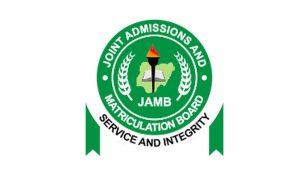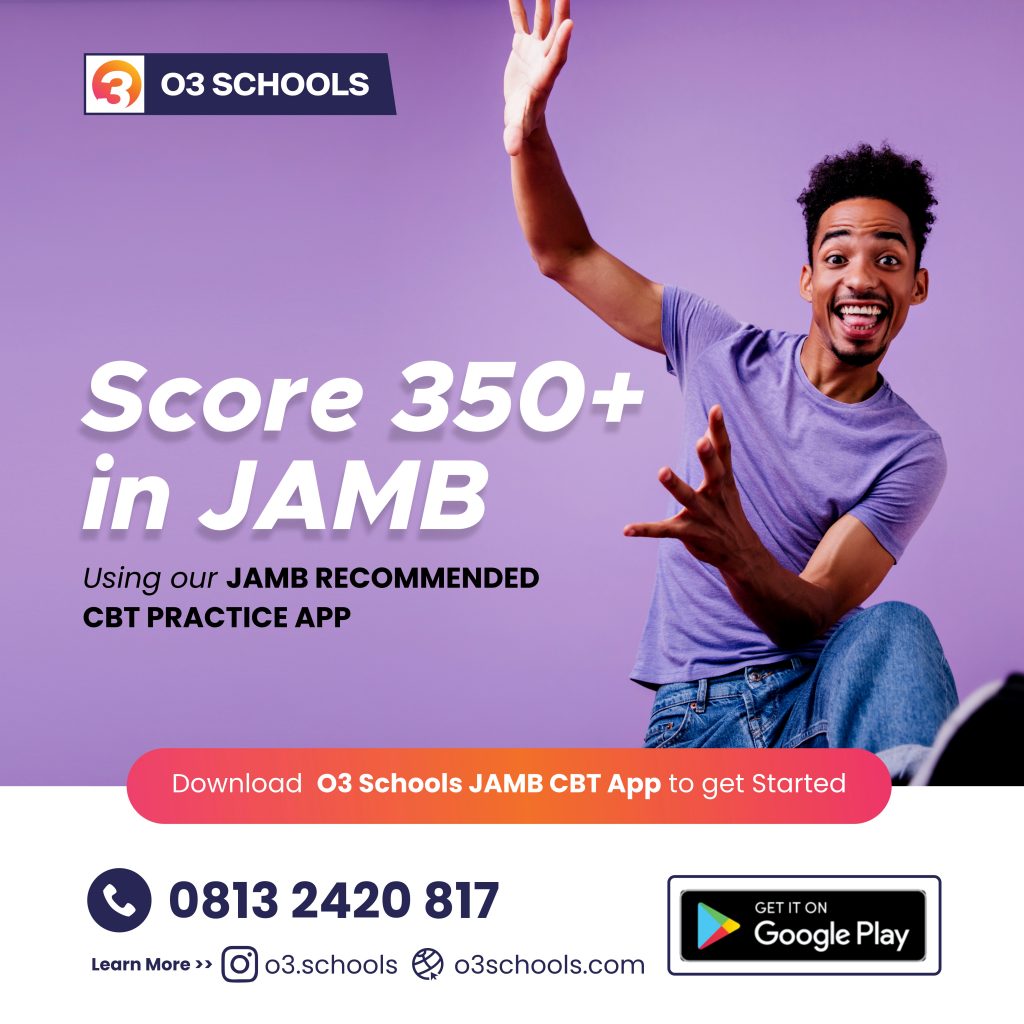Joint Admissions and Matriculation Board JAMB Syllabus for Literature in English 2023
Contents

We are aware at mytopschools.com that you are searching for Joint Admissions and Matriculation Board JAMB Syllabus for Literature in English 2023, jamb syllabus for literature 2023/2024, jamb syllabus for literature in english 2023, jamb syllabus for literature in english 2023 pdf download, literature in english jamb pdf, jamb syllabus for literature 2023, jamb syllabus for literature 2023 pdf, jamb literature for 2023, jamb syllabus for literature 2023 pdf download then you are not alone.
The aim of the Unified Tertiary Matriculation Examination (UTME) 2023 syllabus in Literature in English is to prepare the candidates for the Board’s examination. It is designed to test their achievement of the course objectives, which are to:
- stimulate and sustain their interest in Literature in English;
- create an awareness of the general principles of Literature and functions of language;
- appreciate literary works of all genres and across all cultures;
- apply the knowledge of Literature in English to the analysis of social, political and economic events in the society.

JAMB UTME Literature Reading Texts [2022 – 2026]
The Joint Admissions and Matriculation Board (JAMB) has released the List of Literature Reading Texts / Books for the Unified Tertiary Matriculation Examinations (UTME) Candidates for 2022 – 2026 Session.
The JAMB Literature Reading Texts contains the list of books which are recommended as a reading or study guide for students intending to sit for the Unified Tertiary Matriculation Examinations (UTME) nationwide.
It consists of text for African Prose, Non-African Prose, African Drama, Non-African Drama, African Poetry and Non-African Poetry.
JAMB Literature Reading Texts for 2022 – 2026 has been uploaded online and can be viewed below:
JAMB Literature Reading Texts for 2022 – 2026 UTME [Newly Approved]
| SUBJECT | READING TEXT & SUMMARY | |
| LITERATURE IN ENGLISH | Lion and the Jewel by Wole Soyinka | |
| Look Back in Anger by John Osborne. | ||
| Second Class Citizen by Buchi Emecheta. | ||
| Unexpected Joy at Dawn by Alex Agyei Agyiri. | ||
| Wuthering Heights by Emile Bronte. |
1. DRAMA
Topics:
a. Types:
i. Tragedy
ii. Comedy
iii. Tragicomedy
iv. Melodrama
v. Farce
vi. Opera etc.
b. Dramatic Techniques
i. Characterization
ii. Dialogue
iii. Flashback
iv. Mime
v. Costume
vi. Music/Dance
vii. Décor/scenery
viii. Acts/Scenes
ix. Soliloquy/aside
x. Figures of Speech etc
c. Interpretation of the Prescribed Texts
i. Theme
ii. Plot
iii. Socio-political context
iv. Setting
Objectives:
Candidates should be able to:
i. identify the various types of drama;
ii. analyse the contents of the various types of drama;
iii. compare and contrast the features of different dramatic types;
iv. demonstrate adequate knowledge of dramatic techniques used in each prescribed text;
v. differentiate between styles of selected playwrights;
vi. determine the theme of any prescribed text;
vii. identify the plot of the play;
viii. apply the lessons of the play to everyday living
ix. identify the spatial and temporal setting of the play.
2. PROSE

Topics:
a. Types:
i. Fiction
– Novel
– Novella/Novelette
– Short story
ii. Non-fiction
– Biography
– Autobiography
– Memoir
iii. Faction: a combination of fact and fiction
b. Narrative Techniques/Devices:
i. Point of view
– Omniscent/Third Person
– First Person
ii. Characterisation
– Round, flat, foil, hero, antihero, etc
iii. Language
c. Textual Analysis
i. Theme
ii. Plot
iii. Setting (Temporal/Spatial)
iv. Socio-political context
Objectives:
Candidates should be able to:
i. differentiate between types of prose;
ii. identify the category that each prescribed text belongs to;
iii. analyse the components of each type of prose;
iv. identify the narrative techniques used in each of the prescribed texts;
v. determine an author’s narrative style;
vi. distinguish between one type of character from another;
vii. determine the thematic pre-occupation of the author of the prescribed text;
viii. indicate the plot of the novel; identify the temporal and spatial setting of the novel.
ix. identify the temporal and spatial setting of the novel
x. relate the prescribed text to real-life situations.
3. POETRY

Topics:
a. Types:
i. Sonnet
ii. Ode
iii. Lyrics
iv. Elegy
v. Ballad
vi. Panegyric
vii. Epic
viii. Blank Verse, etc.
b. Poetic devices
i. Structure
ii. Imagery
iii. Sound(Rhyme/Rhythm, repetition, pun, onomatopoeia, etc.)
iv. Diction
v. Persona
c. Appreciation
i. Thematic preoccupation
ii. Socio-political relevance
iii. Style.
Objectives:
Candidates should be able to:
i. identify different types of poetry;
ii. compare and contrast the features of different poetic types:
iii. determine the devices used by various poets;
iv. show how poetic devices are used for aesthetic effect in each poem;
v. deduce the poet’s preoccupation from the poem;
vi. appraise poetry as an art with moral values;
vii. apply the lessons from the poem to real-life situations.
4. GENERAL LITERARY PRINCIPLES

Topics:
a. Literary terms: foreshadowing, suspense, theatre, monologue, dialogue, soliloquy, symbolism, protagonist, antagonist, figures of speech, satire, stream of consciousness, etc., in addition to those listed above under the different genres.
b. Literary principles
i. Direct imitation in play;
ii. Versification in drama and poetry;
iii. Narration of people’s experiences;
iv. Achievement of aesthetic value, etc.
c. Relationship between literary terms and principles.
Objectives:
Candidates should be able to:
i. identify literary terms in drama, prose, and poetry;
ii. identify the general principles of Literature;
iii. differentiate between literary terms and principles;
iv. use literary terms appropriately.
5. LITERARY APPRECIATION

Topics:
Unseen passages/extracts from Drama, Prose, and Poetry.
Objectives:
Candidates should be able to:
i. determine literary devices used in a given passage/extract;
ii. provide a meaningful interpretation of the given passage/extract;
iii. relate the extract to true life experiences.
A LIST OF SELECTED AFRICAN AND NON-AFRICAN PLAYS, NOVELS, AND POEMS

Drama:
African:
i. Frank Ogodo Ogbeche: Harvest of Corruption
Non-African:
i. William Shakespeare: Othello
Prose:
African:
i. Amma Darko: Faceless
Non-African:
i. Richard Wright: Native Son
Poetry:
African:
i. Birago Diop: Vanity
ii. Gbemisola Adeoti: Ambush
iii. Gabriel Okara : Piano and Drums
iv. Gbanabam Hallowell: The Dining Table
v. Lenrie Peter: The Panic of Growing Older
vi. Kofi Awoonor: The Anvil and the Hammer
Non-African:
i. Alfred Tennyson: Crossing the Bar
ii. George Herbert: The Pulley
iii. William Blake: The School Boy
iv. William Morris: The Proud King
RECOMMENDED TEXTS
1. ANTHOLOGIES
Gbemisola, A. (2005) Naked Soles, Ibadan: Kraft
Hayward, J. (ed.) (1968) The Penguin Book of English Verse, London Penguin
Johnson, R. et al (eds.) (1996) New Poetry from Africa, Ibadan: UP Plc
Kermode, F. et al (1964) Oxford Anthology of English Literature, Vol. II, London: OUP
Nwoga D. (ed.) (1967) West African Verse, London: Longman
Senanu, K. E. and Vincent, T. (eds.) (1993) A Selection of African Poetry, Lagos: Longman
Soyinka, W. (ed.) (1987) Poems of Black Africa, Ibadan: Heinemann
2. CRITICAL TEXTS
Abrams, M. H. (1981) A Glossary of Literary Terms, (4th Edition) New York, Holt Rinehalt and Winston
Emeaba, O. E. (1982) A Dictionary of Literature, Aba: Inteks Press
Murphy, M. J. (1972) Understanding Unseen, An Introduction to English Poetry and English Novel for Overseas Students, George Allen and Unwin Ltd.
That’s the much we can take on the topic “Joint Admissions and Matriculation Board JAMB Syllabus for Literature in English 2023”.
Thanks For Visiting
MYTOPSCHOOLS
READ THIS RELATED JAMB POSTS TO KNOW MORE ABOUT JAMB
Price, Selling Points of JAMB UTME E-Pin (Scratch Card)
Joint Admissions and Matriculation Board JAMB Guidelines For Admission
Joint Admissions and Matriculation Board JAMB Cut-Off Marks Admission Exercise
Free JAMB Past Questions for (PDF Format) Download Here
Joint Admissions & Matriculation Board JAMB Brochure
JAMB Subject Combinations for All Courses
JAMB CAPS How to ACCEPT or REJECT Admission Offer
How to Print JAMB Original Result Slip for All Years
How to Easily Register JAMB Using Interswitch
Joint Admissions and Matriculation Board JAMB Mock Examination for UTME Candidates
JAMB Profile Code Generation & Purchase of e-Pin for New & Previously Used Numbers
Joint Admission Matriculation Board JAMB Institution Matriculation List (JAMB CAPS)
How to Create JAMB Online Profile
How to Buy JAMB ePINS Via Interswitch
UTME: Joint Admissions and Matriculation Board JAMB List of Prohibited Items in Exam Hall
JAMB Direct Entry Form Approved Selling Points
JAMB Direct Entry Registration : Instructions & Guidelines
AMB Direct Entry Registration Centres in Nigeria
JAMB Subject Combinations for Courses in the Arts
JAMB Subject Combinations for Courses in the Social Sciences
JAMB Subject Combinations for Courses in the Sciences
JAMB Recommended Books for Music
JAMB Recommended Books for Mathematics
Requirements to Start a JAMB CBT Centre
Joint Admissions and Matriculation Board JAMB Form – Registration Instructions and Guidelines

Great one